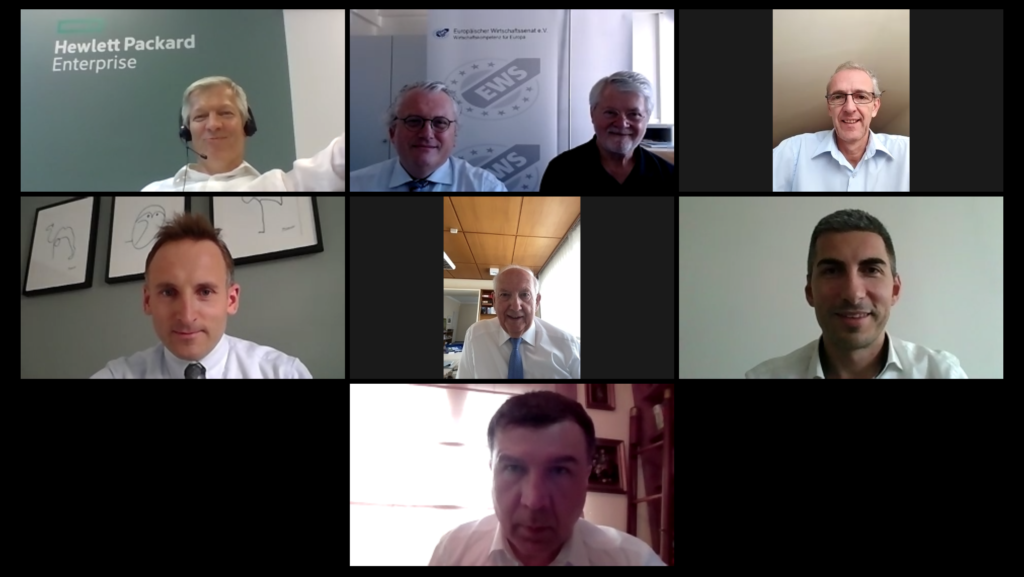COVID-19: SME Policy Response with a Special Focus on CEE
On Tuesday July 14, in cooperation with the European Economic Senate, the Taxpayers Association of Europe and SME Global, SME Europe organized a Virtual Meeting, “COVID-19: SME Policy Response with a Special Focus on CEE”, in order to assess the SME policy responses in Central Eastern Europe as well as the road to recovery and economic growth in the region.

Moderated by SME Europe’s Executive Director, Dr. Horst Heitz, this Virtual Meeting saw very high-level speakers such as: Dr. Ingo Friedrich, President of the European Economic Senate and Honorary President of SME Europe of the EPP; Ivan Stefanec MEP, Member of the Committee on Internal Market and Consumer Protection and President of SME Europe of the EPP; Domagoj Ivan Milosevic, President of SME Global of the IDU; Vladimir Danailov, Executive Director and Member of the Management Board of Fund of Funds in Bulgaria and Member of GERB Entrepreneurs; Marcin Nowacki, Vice-President of Union of Entrepreneurs and Employers (ZPP); Martin Kubala, Managing Director at Hewlett Packard Enterprise for ESEA; and Michael Jäger, CEO of the European Economic Senate and Secretary General of Taxpayers Association of Europe.
Welcoming all attendees, Dr. Ingo Friedrich started the debate by raising many questions about the future of Europe and SMEs post COVID-19. Who will be losers and winners of COVID-19? What is the European Union doing to help SMEs?
Following Dr. Friederich’s opening speech, Ivan Stefanec MEP highlighted the necessity of unified European action aimed towards improving access to finance, building a Capital Market Union across Europe as well as furthering the integration of the internal single market to reduce administrative burdens. Similarly, Domagoj Milosevic promoted fair competition and continued education and training as drivers of sustainable economic growth. Ultimately, he commented, while it’s important to offer funding as part of the recovery strategy, money should only be regarded as a tool and that clear vision, leadership and common values are what will actually lead Europe out of the crisis.
Vladimir Danailov remarked the importance of establishing an appropriate framework to support SMEs during these times, a framework that combines less administrative burdens, more flexible legislation and more incentives for the enterprises’ digital transformation. To overcome the crisis, all businesses should focus upon technology and innovation, while adapting any plans that pre-existed the COVID-19 outbreak.
Relaying the experience of Polish entrepreneurs, Marcin Nowacki states that current European recovery funds should be deployed in conjunction with smarter regulation and fiscal reforms, in order to balance financial stability at a domestic and national level. Efforts to reduce unnecessary bureaucracy and ease such burdens on SMEs should be intensified, so as to facilitate recovery and render these businesses more competitive against global players. Bringing in the perspective of larger companies, Martin Kubala emphasized the importance of remaining adaptable and dynamic, especially in regard to supply chain disruptions and the social dimension of work.
In response to a Sparkasse’s speaker repeating financing-related issues concerning SMEs, Michael Jäger advocated for efficient use of existing funds, all the while debating the functionality of additional taxes. To summarize all interventions, Jäger remarked the importance of competition, low taxes and smart regulation to boost the economy. Ultimately, the COVID-19 crisis is merely a symptom of underlying systemic issues: we must build together a Europe that is resilient and fit for the future, whatever this future may hold.
the replay

